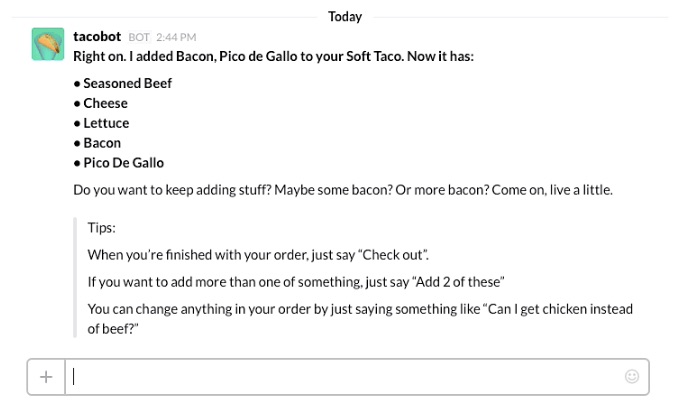Top 5 Startup Trends For 2017
A 19-year old student, Boyan Slat, recently invented a device that will clean up ocean garbage, primarily plastic, that threatens all forms of ocean life. Now 21, he is about to see the first prototype go to work, having been mentored by a startup accelerator. Three students in Africa recently demonstrated a process by which urine can create electricity.
2017 promises to be a year of continued innovation, and in the tech arena especially, new startups hold a lot of promise for business, governments, and overall human well-being. Here are 5 top startup trends to watch out for in 2017.
Table of Contents
#1 AI and Machine Learning
Artificial intelligence has been a theme of science fiction for years. And now it is our reality – machines that can analyze behavior patterns and make predictions based on those patterns.
A very simple form of this occurs when Amazon recommends additional products to its shoppers. It has a lot of data that a machine has analyzed, telling it that, customers who bought product “A” also bought other specific products. And so, it promotes those products to anyone purchasing product “A.”
AI has gone far beyond the traditional algorithms for shopping on Amazon, however. Advanced technologies now enable machines to analyze big data, to discover patterns, to predict future behaviors, and to actually learn from all of these activities, producing new patterns.
Getting in on the Money<
Throughout 2016, large enterprises have been pumping money into AI technology by the billions of dollars. In fact, it is predicted that by 2020, about $5.05 billion will be spent.
Clearly, AI is one of the biggest tech trends right now, and anyone with solid tech startup ideas in the area of machine learning has the potential to go after big startup investment rounds, as well as to be acquired by the likes of Google, Salesforce or Apple, all of which have acquired more than 40 tech start-ups related to AI.
The research firm Gartner, predicts that 62% of big businesses will be using some form of AI technology by 2018 and has named AI as one of the top hot tech startup trends for two years in a row.
AI Uses and Users are Broadening
Up until now, only the “big boys” could really participate in the development of AI technology. They could afford the data scientists to do it or to buy the technology from small startup names. This is no longer the case. Universities have plunged into machine learning and AI course programs, and an entire force of savvy young grads are now poised to enter the AI arena.
According to Ludo Ulrich, an executive with Salesforce, thanks to the current scientific interest in this niche, along with the advancement of the technology, smaller enterprises will soon be able to take advantage of machine learning too. Ulrich is in charge of “startup relations” for Salesforce, and believes that throughout 2017, AI will be one of the startup trends that will be huge in 2017.
Applications of Machine Learning and AI

Healthcare startup trends, for example, will be in areas of IoT monitoring devices worn by patients to apps that will perform diagnosis and prescriptive services, based upon huge global data that no human could analyze manually.
Fintech startup trends will be in the areas of apps that allow individual investors to access all of the same information that their financial advisors have. AI apps will analyze and predict trends in financial markets and make recommendations for stock and other investments. In fact, according to Odysseas Papadimitrious, CEO of WalletHub, financial advisors face extinction.
And personal banking is on the verge of significant disruption. Big banks, such as Wells Fargo and Bank of America, are already incorporating AI and machine learning to recognize patterns of behavior that signal fraud and identity theft. In September of this year, three University of Michigan professors and their fintech startup Clinic, launched “Finie,” an open source platform personal banking assistant who will answer most any question a depositor has, from “What is my balance?” to “How much did I spend in restaurants on my recent trip to New York?”
Big Data Keeps Getting Bigger
AI and machine learning are the spawn of big data. There is just so much of it today that humans cannot digest it, much less analyze it and mesh it with other relevant data that can impact their businesses.
According to IBM, in fact, the world generates about 2.5 quintillion bytes of data every day. Finding and analyzing the right data can no longer be done manually. If both B2C and B2B companies want to understand customer behaviors, if healthcare providers want to be able to improve patient care, if retailers and other agencies want to stem the tide of continued and ever more sophisticated data breaches and if banks want to increase their services to customers, thus remaining more competitive, then AI will certainly prove to be the answer.
#2 Chatbots
Recently, Taco Bell introduced its chatbot, named Tacobot. Customers can place orders and engage in friendly conversation with Tacobot while they confirm orders and make menu suggestions. It’s called “Conversational Commerce,” a term coined by Chris Messina, lead UX developer for Uber. And it’s one of the biggest trends in startups right now. As Messina said over a year ago, “…conversational commerce is about delivering convenience, personalization, and decision support online, while people are on the go, with only partial attention to spare. I expect more service providers will shift in this direction, becoming subtler in how they integrate into our lives.” It appears that he was right.
Here is a typical conversation with Tacobot:
Sometimes called web messaging apps, these chatbots will soon bring about the demise of traditional apps where fat fingers have to tap and scroll to get someone’s business done. They can do so much more with a chatbot app.
- Answer customer queries – this is why Amazon’s Echo and Alexa are so popular.
- Recommend and make additional suggestions for purchases – clothing retailer H&M uses its chatbot for this purpose, once it queries customers regarding preferred styles, colors, and sizes. And every time a customer returns to its internet site, the information is already there.
- Provides a greater speed of shopping, which today’s consumer appreciates.
- Predict future purchases and re-target easily.
Recent statistics from Business Insider show that messaging apps already surpass use of social media. It is only a matter of time until all companies will be clamoring to incorporate chatbots for connecting with their customers on a more personalized and customized basis.
Developing chatbots for clients will be one of the most common IT startup trends during 2017. Business Insider, in fact, states that by 2020, most consumers will not be talking with a live person for purchasing or customer service needs.
#3 Cybersecurity
Cybersecurity will be another one of the big AI startup industry trends. Humans pouring through data to try to respond to security breaches after they have occurred is inefficient.
In fact, many major data breaches are not even discovered until well after they have occurred and caused huge damage. Some of the biggest data breaches have included government agencies (U.S.A. Dept. of Justice and the IRS in early 2016) and healthcare providers (patient names, social security numbers, etc.). Large retailers and banks have fallen victim too.
Security software using AI will be one of the best industries for startups – enterprises that can allow companies and agencies to detect breaches early on and take action in a proactive way.
While this field is still in its infancy, primarily because there is a manpower shortage, companies like SparkCognition are moving forward with what its senior product manager, Keith Moore, says are “…cognitive algorithms to constantly learn new malware behaviors and recognize how polymorphic files may try to attack in the future…”.
In 2017, we can expect major startup technology trends in security management services that use AI technology to anticipate and prevent the types of breaches we have recently seen.
Because cybersecurity is an ever-evolving technology, the best startups will be those that can provide the latest innovations in protection. Those that focus on products as opposed to management will experience a greater startup failure rate.
#4 AR and VR
A popular gifting item this Christmas is the VR (Virtual Reality) headset. VR and its younger sister AR (Augmented Reality) are rapidly becoming tools that will dominate far more than video games. Companies are looking to turn them into marketing messages.
A company called Looksar has already providing AR services to retailers. For example, an individual selecting a wine can scan the label and see the entire process of that wine’s production. Likewise, scanning a menu will allow a diner to view the entire process of the chef making that meal.
This past fall, Investor’s Business Daily made its annual predictions – 30% of B2C companies within the Forbes 2000 will at least experiment with AR and VR for marketing purposes. It is also predicted by IDC, the global market intelligence firm, that, by 2020, more than a billion people will have access to this new technology.
Big consumer-driven companies like Kellogg’s, Lego, and McDonald’s are already getting into experimentation. And augmented reality has already begun with apps such as “Pokémon Go.”
Among the trends affecting startup businesses, there will definitely be AR and VR phenomena. Consider some of the other uses:
- It’s no accident that Facebook purchased the production of the VR Oculus Rift headset. It is obviously anticipating that commercial media using the platform will be a 360-degree photo and video content.
- Handicapped people may have access to VR in order to “travel” and engage with family members who are far away.
- VR will probably be used by business startups who have remote workers and have a need in them to be a “part of” the office environment. Thus, employees will be virtually in-house.
#5 Intelligent Things and Wearables
Spectacles by Snap (Snaptacles?) hit the market like a superstar, just the latest in a string of wearables that have captivated youthful consumers. Wearers can take 10-second videos with their sunglasses and save them to load onto Snapchat later. But, of course, this demographic is not the only generation to benefit from smart devices.
Other “smart” things are a combination of IoT and AI technologies – blood pressure and sugar level monitors that send a steady stream of information to a health care provider and alert both patient and provider when things are wrong.
Newer innovations along these lines will use AI and IoT technologies for devices to speak with one another as well, developing what Gartner refers to as a “collaborative intelligent things model.” Thus, the blood pressure monitor will not only speak with the physician but, as well, with the machine that will determine the proper tweaking of medication. That machine will then send that information to the pharmacy smart device that will see that the new prescription is filled and delivered. Suppose that’s another EHR trend to count in.
Whether you are a startup or a successful existing business, new technology trends will impact your competitiveness. For a discussion on how these trends can be incorporated into your business model and or leveraged for a new product, contact Romexsoft and speak with one of our tech developers.








